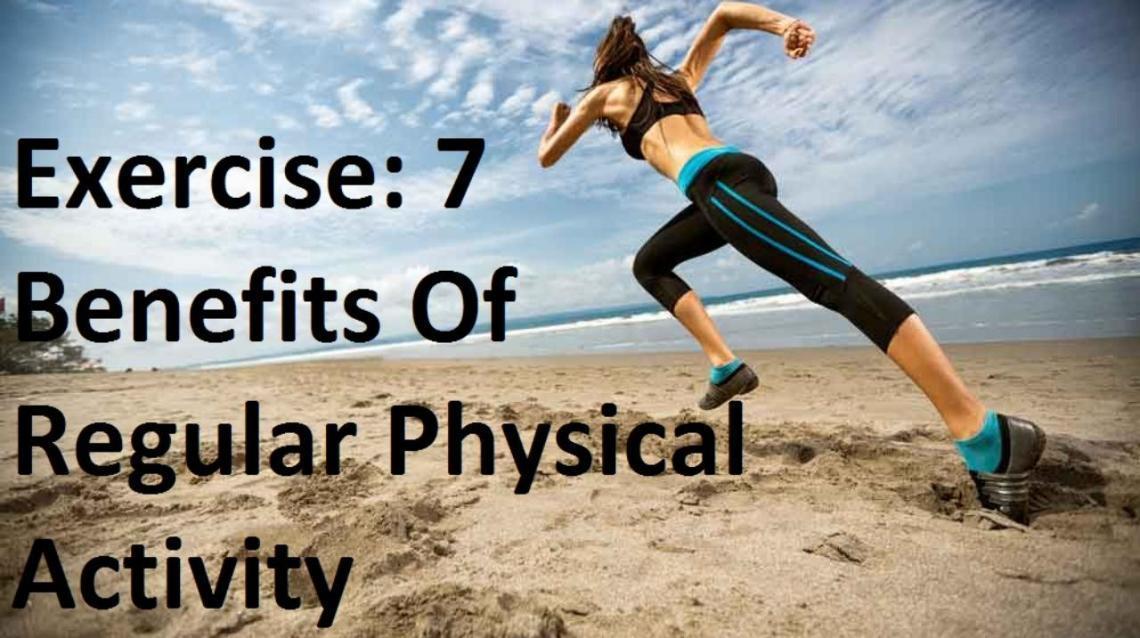Maintaining a regular exercise routine can provide numerous benefits for both physical and mental health. Regularly engaging in physical activity can lead to improved cardiovascular health, increased strength and flexibility, weight management, and reduced risk of chronic diseases such as type 2 diabetes and certain types of cancer. Additionally, regular exercise can positively affect mental health, reducing symptoms of anxiety and depression and improving mood and overall well-being. In this blog, we’ll explore the benefits of regular physical activity and how incorporating exercise into your daily routine can lead to a healthier, happier life.
1. Exercise controls weight
Exercise can help prevent excess weight gain or help maintain weight loss. When you engage in physical activity, you burn calories. The more intense the activity, the more calories you burn.
Regular trips to the gym are great but don’t worry if you can’t find a large chunk of time to exercise every day. Any amount of activity is better than none at all. To reap the benefits of exercise, just get more active throughout your day — take the stairs instead of the elevator or rev up your household chores. Consistency is key.
2. Exercise combats health conditions and diseases
Worried about heart disease? Hoping to prevent high blood pressure? No matter your current weight, being active boosts high-density lipoprotein (HDL) cholesterol, the “good” cholesterol, and it decreases unhealthy triglycerides. This one-two punch keeps your blood flowing smoothly, which decreases your risk of cardiovascular diseases.
Regular exercise helps prevent or manage many health problems and concerns, including:
- Stroke
- Metabolic syndrome
- High blood pressure
- Type 2 diabetes
- Depression
- Anxiety
- Many types of cancer
- Arthritis
- Falls
It can also help improve cognitive function and helps lower the risk of death from all causes.
3. Exercise improves mood
Need an emotional lift? Or need to destress after a stressful day? A gym session or brisk walk can help. Physical activity stimulates various brain chemicals that may make you happier, more relaxed, and less anxious.
You may also feel better about your appearance and yourself when you exercise regularly, boosting your confidence and self-esteem.
4. Exercise boosts energy
Are you winded by grocery shopping or household chores? Regular physical activity can improve your muscle strength and boost your endurance.
Exercise delivers oxygen and nutrients to your tissues and helps your cardiovascular system work more efficiently. And when your heart and lung health improve, you have more energy to tackle daily chores.
5. Exercise promotes better sleep
Struggling to sleep? Regular physical activity can help you fall asleep faster, get better sleep and deepen your sleep. Don’t exercise too close to bedtime, or you may be too energized to sleep.
6. Exercise puts the spark back into your sex life
Are you too tired or out of shape to enjoy physical intimacy? Regular physical activity can improve energy levels and increase your confidence in your appearance, which may boost your sex life.
But there’s even more to it than that. Regular physical activity may enhance arousal for women. And men who exercise regularly are less likely to have problems with erectile dysfunction than men who don’t.
7. Exercise can be fun … and social!
Exercise and physical activity can be enjoyable. They give you a chance to unwind, enjoy the outdoors or simply engage in activities that make you happy. Physical activity can also help you connect with family or friends in a fun social setting.
So take a dance class, hit the hiking trails, or join a soccer team. Find a physical activity you enjoy, and just do it. Bored? Try something new, or do something with friends or family.
The bottom line on exercise
Exercise and physical activity are great ways to feel better, boost your health and have fun. For most healthy adults, the U.S. Department of Health and Human Services recommends these exercise guidelines:
- Aerobic activity. Get at least 150 minutes of moderate aerobic activity or 75 minutes of vigorous aerobic activity a week, or a combination of moderate and vigorous activity. The guidelines suggest that you spread out this exercise over a week. To provide even greater health benefits and to assist with weight loss or maintaining weight loss, at least 300 minutes a week is recommended. But even small amounts of physical activity are helpful. Being active for short periods throughout the day can add up to provide health benefits.
- Strength training. Do strength training exercises for all major muscle groups at least twice weekly. Aim to do a single set of each exercise using a weight or resistance level heavy enough to tire your muscles after about 12 to 15 repetitions.
Moderate aerobic exercise includes activities such as brisk walking, biking, swimming, and mowing the lawn. Vigorous aerobic exercise includes running, heavy yard work, and aerobic dancing. Strength training can include using weight machines, your body weight, heavy bags, resistance tubing or resistance paddles in the water, or activities such as rock climbing.
If you want to lose weight, meet specific fitness goals, or get even more benefits, you may need to ramp up your moderate aerobic activity even more.
Remember to check with your doctor before starting a new exercise program, especially if you have any concerns about your fitness, haven’t exercised for a long time, or have chronic health problems like heart disease, diabetes, or arthritis.


